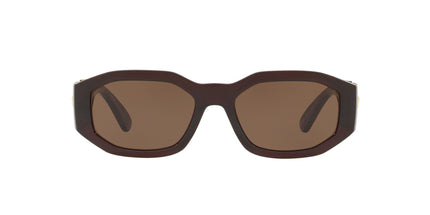Eye Floaters: Symptoms, Cause & Treatment You Should Know!

You must have noticed small spots or figures lingering around your vision whenever you look at something. These eye floaters drift along your field of vision. It doesn’t matter if you wear eyeglasses or lenses or don’t wear anything; it happens to probably everyone.
These spots seem more visible when you look at something brighter. These can be annoying but won’t become a hindrance to your sight. Floaters are common and don’t require eye treatment.
They always stay in the eye (permanently) but get less pronounced. However, if they frequently appear, shadow your vision, and appear more in number, you may require treatment.
Eye Floaters: What Do They Resemble?
The most annoying thing about floaters is that they move away when you try to focus on them. Floaters can resemble clouds, spiders, medusas, or amoebas. People with floaters may find their shape resembling the following:
- Spider-like shapes
- Squiggly lines
- Spots (black or grey)
- Rings
- Cobwebs
- Thread-like strands
- Shadowy shapes
Eye Floaters: What Eye Parts Do They Affect?
Eye floaters can often appear on the eye's surface or right in front of it. As a result, you might start rubbing your eyes, thinking it’s because of your contact lenses or glasses, to rid yourself of these annoying particles.
But these floaters are present inside the eye. The gel-like fluid in the eye (called vitreous) gives the eye its round shape. Floaters can impact the retina as they are in the vitreous, hovering in front of the retina.
This can cause shapes and shadows on the retina, affecting what you see.
Eye Floaters: What Causes Them?
Multiple reasons can cause floaters. However, aging is the main cause. As you age, the vitreous starts to shrink, creating tinier particles to float down through the gel-like fluid. These floaters typically settle at the bottom of the eye, making them unnoticeable.
The other serious reasons that cause eye floaters include:
- Eye inflammation
- Eye injury
- Diabetic retinopathy
- Eye tumors
- Detached retina
- Torn retina
- Bleeding in the vitreous
If your floaters appear as a kaleidoscope in your visual aura, these aren’t floaters. This may come from a migraine headache or other problems. But it lasts less than or equal to 30 minutes.
Who Can Develop Floaters?
Most typically, eye floaters develop in aged people. This doesn’t mean people with eyeglasses or contact lenses are safe. This can happen to anyone. But the following people are at a higher risk of developing floaters:
- Diabetics
- People older than 50
- Nearsighted people
- People who had undergone surgery to correct cataracts
- People who faced eye swelling
Is There a Certain Age Where Eye Floaters Start to Develop?
Generally, people aged between 50 to 70 have developed eye floaters, which appear in their vision. But you may experience occasional floaters before this age. These floaters happen less commonly.
If these are persistent, you can consult your doctor. This may be due to a serious eye condition. So, get in touch with your doctor.
When Should You Visit a Doctor?
If floaters appear less commonly, it’s not a problem for you. But visit your doctor as soon as possible if you experience the following:
- Flashes of light
- A sudden increase in the number of floaters
- Loss of side vision
- Eye pain
- Floaters after eye trauma or surgery
- Eye changes that happen quickly and worsen over time
Opt for a doctor that has experience dealing with retina problems. Get help if any of the above situations happen. Or you may lose your vision.
Treatments for Floaters
Benign eye floaters don’t require treatment. If these floaters annoy you, stop focusing on them. They will leave your field of vision. You can do so by moving your eyes around. This will shift the gel-like fluid around. You can even move your eyes up and down.
The real problem starts when these eye floaters increase in number considerably. If this happens, floaters will block your vision. Your chosen doctor may suggest undergoing a surgery called “vitrectomy”.
The doctor will remove the vitreous and add a salt solution. However, you might face complications like:
- Torn retina
- Cataracts
- Detached retina
The risk of these problems occurring is low. If it happens, your vision can get permanently damaged.
Conclusion
Eye floaters aren’t generally an emergency for eyeglass or contact lens wearers. An occasional floater isn’t something you should be worried about. Just make sure you get regular eye checkups to prevent any problems with your vision.
But if you have more floaters than normal, consult your doctor immediately. This can be because of retinal detachment or tear, which requires emergency treatment.















 Back to Blog Page
Back to Blog Page











